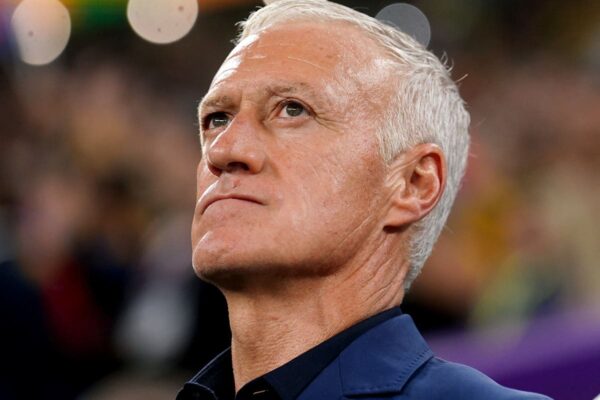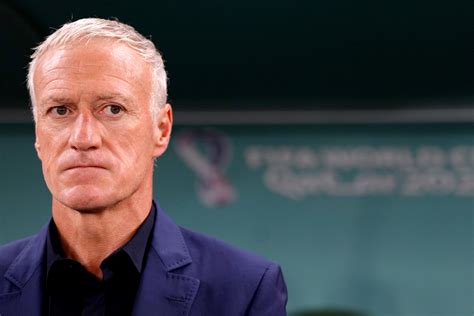Didier Deschamps, one of the most successful managers in international football, has officially announced that his time as head coach of the French national team will conclude following the 2026 World Cup. This tournament, set to be hosted across the United States, Mexico, and Canada, will mark the end of a remarkable 14-year tenure that saw Deschamps guide France to the pinnacle of global football.
A Legacy of Triumphs and Heartbreak
The 56-year-old Deschamps has enjoyed immense success as manager of Les Bleus, most notably leading them to World Cup glory in 2018. Under his stewardship, France lifted the coveted trophy in Russia, defeating Croatia 4-2 in a thrilling final. However, his journey also includes moments of heartbreak, such as the penalty shootout loss to Lionel Messi’s Argentina in the 2022 World Cup final in Qatar, a match many describe as one of the most dramatic finals in the tournament’s history.
Deschamps confirmed his decision to step down during an interview with French broadcaster TF1. “In 2026, it will be over. In my head, it’s very clear,” he stated. “I’ve done my time, with the same desire and passion to maintain France at the highest level. One has to be able to say stop; there’s a life after this. The most important is for France to stay at the top as they have been for many years.”
A Storied Career with Les Bleus
Appointed as France’s head coach in 2012, Deschamps took charge of the team after a storied playing career, during which he captained France to their first World Cup triumph on home soil in 1998. He is one of only three individuals to win the World Cup both as a player and a coach, a distinction that places him in elite company alongside Mario Zagallo and Franz Beckenbauer.

During his managerial tenure, Deschamps has overseen four World Cup campaigns:
1. 2014: Guided France to the quarter-finals in Brazil, where they were narrowly defeated by eventual champions Germany.
2. 2018: Secured World Cup glory in Russia, cementing his legacy in French football history.
3. 2022: Reached the final in Qatar but fell to Argentina in a penalty shootout after a pulsating 3-3 draw.
4. 2026: Set to lead France for the last time, provided the team secures qualification.
Deschamps’ success extends beyond the World Cup. Under his leadership, France won the UEFA Nations League in 2021 and reached the final of Euro 2016, where they suffered a narrow defeat to Portugal on home soil. However, the European Championship remains the one major trophy that has eluded him as a manager, despite winning it as a player in 2000.
Facing Criticism and Challenges
Deschamps’ decision to step down has been the subject of speculation for some time, particularly following France’s semi-final defeat to Spain in Euro 2024. The loss reignited calls for a managerial change, but Deschamps chose to stay on, determined to guide France through another World Cup cycle.
Reflecting on his tenure, Deschamps acknowledged the challenges but emphasized his commitment to maintaining France’s status as a football powerhouse. “I’ve done my time, with the same desire and passion to maintain France at the highest level,” he said. “The most important is for France to stay at the top as they have been for many years.”
The Final Chapter
When the 2026 World Cup begins, Deschamps will aim to leave on a high note. His contract, which runs through the tournament, will see him lead France into what promises to be a highly competitive global event. Should France qualify, it will be Deschamps’ fourth World Cup as manager, a testament to his longevity and success in the role.
While the World Cup remains the primary focus, Deschamps also has an opportunity to add another piece of silverware to his collection before his departure. France is set to face Croatia in the quarter-finals of the UEFA Nations League in March, with the prospect of claiming a second title in the competition on the horizon.
A Managerial Journey
Before taking the reins of the national team, Deschamps built his managerial credentials at some of Europe’s most prestigious clubs. His coaching career began at AS Monaco, where he guided the team to the UEFA Champions League final in 2004. He later managed Juventus during their return to Serie A after the Calciopoli scandal and enjoyed a successful stint at Marseille, winning Ligue 1 and three consecutive Coupe de la Ligue titles.
These experiences prepared Deschamps for the immense responsibility of leading France, a role he has held with distinction for over a decade. His tactical acumen, motivational skills, and ability to nurture young talent have been instrumental in France’s sustained success on the international stage.
What Lies Ahead
As Deschamps prepares for his final years as France’s head coach, speculation about his successor is likely to intensify. The French Football Federation will face the daunting task of finding a manager capable of continuing the legacy Deschamps has built.
For now, Deschamps remains focused on the task at hand—guiding France through the upcoming Nations League campaign and ensuring the team is ready to compete at the highest level in 2026.
“In 2026, it will be over,” Deschamps reiterated. “There’s a life after this, but for now, the most important thing is for France to remain at the top, where they belong.”
As the curtain prepares to fall on an era defined by both triumph and resilience, Didier Deschamps’ legacy as one of football’s greatest managers is already firmly established.

